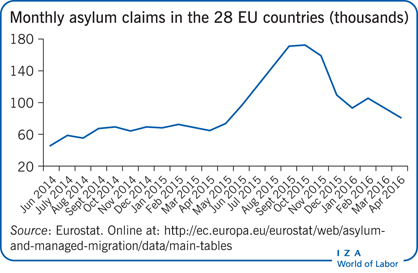Elevator pitch
Millions of people enter (or remain in) countries without permission as they flee violence, war, or economic hardship. Regularization policies that offer residence and work rights have multiple and multi-layered effects on the economy and society, but they always directly affect the labor market opportunities of those who are regularized. Large numbers of undocumented people in many countries, a new political willingness to fight for human and civil rights, and dramatically increasing refugee flows mean continued pressure to enact regularization policies.

Key findings
Pros
More job and occupational mobility allow regularized workers to search for jobs without fear of deportation.
Regularization leads to higher wages through better jobs and because wage exploitation is harder to hide.
Workers may become more productive after regularization because they can work in an occupation for which they are trained, more freely invest in human capital, or receive job training without fear of deportation.
Massive refugee flows indicate an ongoing demand for regularization; denied asylum claims may lead to large populations of undocumented residents.
Regularization can reduce labor exploitation among undocumented workers.
Cons
The impact of regularization on employment is unclear; some researchers find rising employment for men and falling employment for women and some find the reverse.
Regularization tied to employment contracts inhibits wage increases that would normally be associated with greater job and occupational mobility.
Little is known about regularization’s impact in European countries because of a lack of adequate data and studies.
Native workers often oppose regularization because they fear increased competition for jobs.